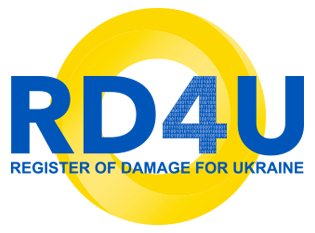Frequently Asked Questions
These answers are subject to adoption of the rules and regulations of the Register in accordance with its Statute and will be regularly revised and updated.
 General
General
 Claims Categories
Claims Categories
A1.1 Involuntary internal displacement
A2.1 Death of an immediate family member
A2.2 Missing immediate family member
A2.3 Serious personal injury
A2.4 Sexual violence
A2.5 Torture or inhuman or degrading treatment or punishment
A2.6 Deprivation of liberty
A2.7 Forced labour or service
A2.8, A2.9 Forcible Transfer or Deportation of Children and Adults
A3.1 Damage or destruction of residential immovable property
А3.2 Damage or Destruction of Non-Residential Immovable Property
А3.3 Loss of Housing or Residence
A3.6 Loss of access or control of immovable property in the temporarily occupied territories



